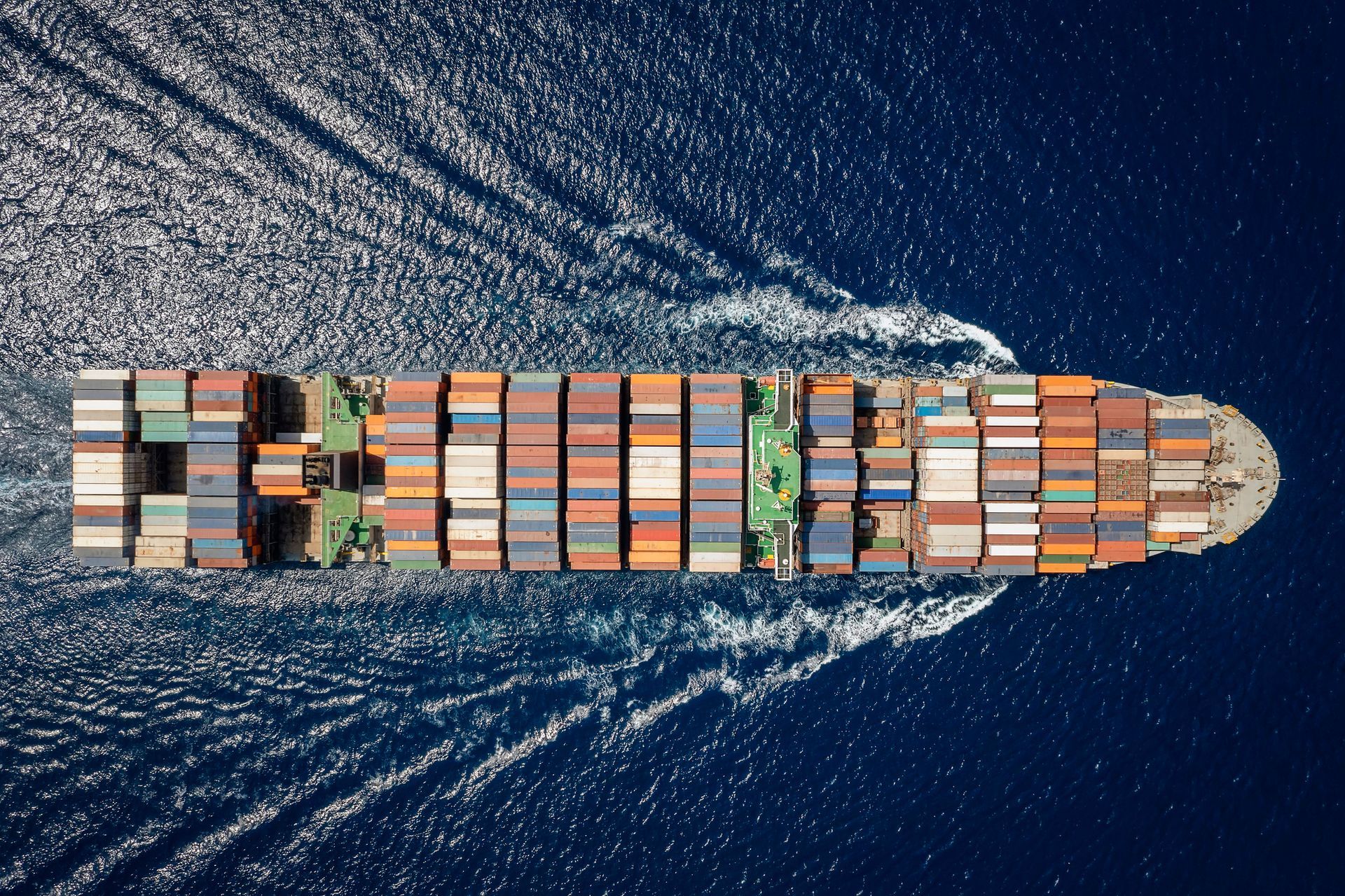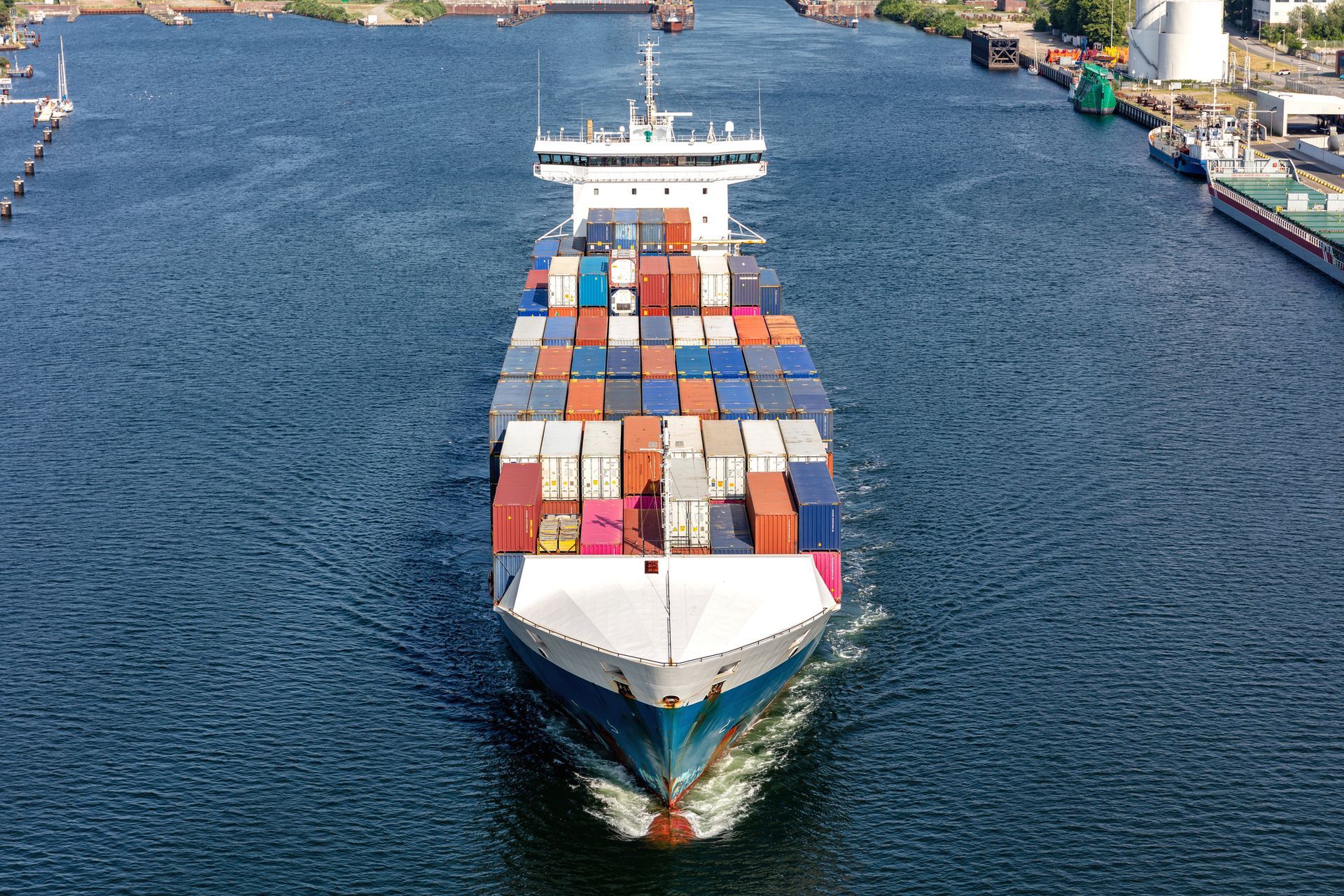
The maritime transport sector, one of the key drivers of the global economy, is undergoing a transformation that will shape its future in the coming years. With a significant role in international trade, this segment is adapting to new demands driven by economic, environmental, and technological factors.
The 2025 Ocean Outlook report highlights trends that will define the market through 2025, urging freight forwarders and shippers to prepare for upcoming challenges and opportunities.
In this article, we will explore these trends and understand how they will influence the maritime transport sector, based on detailed analyses and expert projections.
Changes in Global Maritime Trade
Global maritime trade is experiencing profound changes, influenced by geopolitical tensions, reconfigured routes, and new trade policies. The impact of these changes is directly reflected in strategic routes like the Red Sea and the Suez Canal, which have undergone adjustments due to regional disputes.
According to the report, TEU/mile demand on these routes has fluctuated significantly, with variations ranging from 3% to -11%, creating an environment of uncertainty for logistics operators.
Furthermore, the forecast of a mere 3% growth in global container demand by 2025—following a record year in 2024—emphasizes the need for more dynamic strategies to mitigate the impacts of this slowdown.
Companies must adjust their operations to respond to this new reality by adopting more efficient solutions that ensure resilience and competitiveness in the international market.
Technological Innovations and Sustainability
Pressure for Sustainability and Reduced Emissions
Sustainability is at the heart of discussions about the future of the maritime sector.
Environmental regulations are becoming increasingly stringent, especially in the European Union, where the Emissions Trading System (ETS) will expand to cover 70% of CO₂ emissions by 2025. This compels companies to invest in sustainable technologies and alternative fuels, such as biofuels and auxiliary wind energy.
This shift toward more sustainable practices is not just a regulatory requirement but also a strategic opportunity. Companies that invest in ESG (Environmental, Social, and Governance) initiatives will gain a competitive edge, attracting customers and investors who value environmentally responsible efforts.
Moreover, adopting green technologies can lead to significant operational savings as regulations increasingly penalize polluting operations.
Technological Innovations and Digitalization
Technology is playing a crucial role in modernizing the maritime sector.
The integration of digital solutions such as IoT, artificial intelligence, and big data is transforming logistics management, enabling real-time tracking, more accurate forecasts, and enhanced operational safety.
These advancements not only increase efficiency but also reduce operational costs, making operations more agile and competitive.
Autonomous ships are emerging as a near reality, driven by the need to reduce costs and improve operational efficiency. Automation can revolutionize the sector, minimizing human error and optimizing resource utilization. Companies that embrace these technologies early will lead the next phase of global maritime logistics.
Climate Change Impact
Climate change poses a growing challenge to maritime transport. Extreme weather events, such as storms and hurricanes, along with rising sea levels, are altering routes and impacting the safety of ports worldwide.
The report emphasizes the need for companies to invest in more resilient infrastructures and develop contingency plans to address these challenges.
Adaptability will be a key competitive differentiator. Companies that anticipate the effects of climate change will be better positioned to ensure operational continuity and minimize losses, while those that fail to adapt may face significant disruptions and financial setbacks.
Transformations in Supply Chains
The global supply chain is being restructured to become more resilient and less vulnerable to disruptions. The COVID-19 pandemic exposed significant weaknesses, prompting companies to reevaluate their logistics networks and seek regional alternatives to reduce risks.
This new approach is supported by technologies that provide greater visibility and control over the supply chain. Digital solutions enable precise tracking of goods and more efficient communication with logistics partners, resulting in more agile and effective operations.
Companies that adopt these innovations will be better prepared to face future crises and ensure the continuity of their operations.
Growth in New Markets and Opportunities
The push for sustainable practices is driving the emergence of new business models in the maritime sector. Companies are exploring concepts such as the circular economy, ship recycling, and eco-friendly fleets to meet the demand for greener operations.
Strategic partnerships between transport and technology companies are also creating innovative solutions that address market demands and environmental regulations.
These initiatives not only respond to regulatory pressures but also offer significant competitive advantages. Models based on energy efficiency and sustainability are becoming essential to maintain relevance in the global market, creating new opportunities for companies that adopt innovative practices.
Impact of Regulatory and Economic Policies
Regulatory policies are playing an increasingly significant role in the sector. The entry into force of the Hong Kong International Convention, scheduled for 2025, will require countries to adopt strict measures for the safe recycling of ships, significantly impacting global maritime operations.
Brazil, for example, is preparing to integrate these regulations into its national legislation, which will require substantial adjustments by local companies.
These changes also have economic implications, as companies that fail to comply with the new regulations may face sanctions and challenges in operating in international markets.
Conversely, those that invest in regulatory compliance will be better positioned to explore new opportunities and strengthen their global presence.
Challenges and Risks for 2025
Despite predictions of stable freight rates, the maritime sector will continue to face substantial economic challenges. Rate volatility, political instability, and regulatory pressures will create a challenging environment for companies.
Adaptability will be essential to overcoming these obstacles.
Companies that leverage predictive analytics and data-driven strategies will gain a competitive edge, efficiently adjusting their operations and minimizing financial risks.
Conclusion
Maritime transport in 2025 will be shaped by a balance between innovation, sustainability, and resilience. Companies that adapt to these transformations will be well-positioned to thrive in an increasingly dynamic and competitive global market.
The ability to anticipate trends and adopt innovative practices will be crucial to ensuring sustainability and continuous growth in this strategic sector.
Want to learn more? Check out our article on international maritime freight and understand the recent price fluctuations.
Continue a navegar no blog da Allink

Mantenha-se informado sobre o comércio exterior
Assine nossa newsletter e receba atualizações semanais de forma gratuita sobre o mundo da logística.




